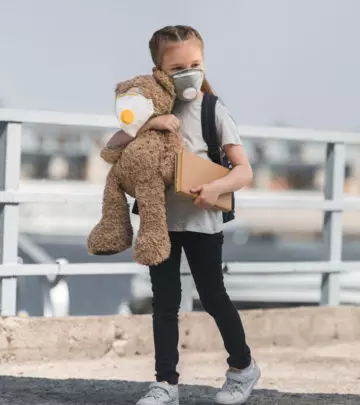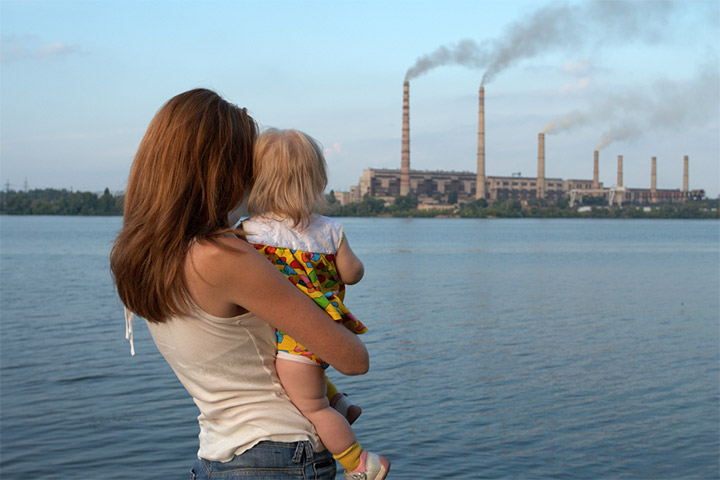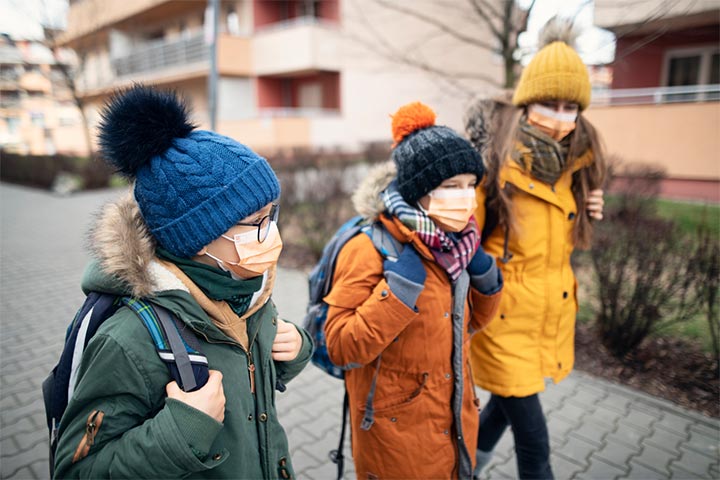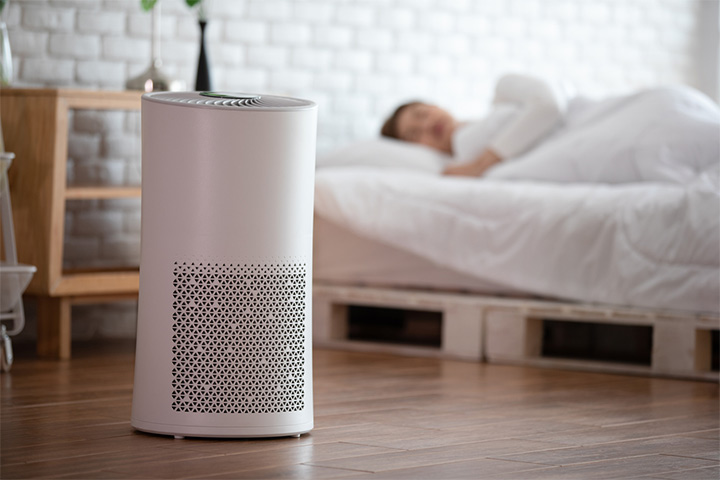
Image: Shutterstock
Air pollution is a major source of concern globally. The quality of the air we breathe keeps deteriorating daily, and this is tied closely to the growth of industrialization. Its effect on human and animal life is profound.
Even as large corporations and governments take action to reverse this trend, it would take years before they can make any improvement. The reality of things puts everyone in dire conditions, especially children. As kids breathe polluted air, it gravely affects them.
According to the WHO (1), 93% of children under the age of 15 (1.8 billion children) breathe severely polluted air. Because their body system isn’t fully-formed, polluted air puts their development and health at serious risk.
However, there are steps you can take to reduce the amount of polluted air your kids breathe.
Measure Air Quality
You might wonder, the air quality is terrible, why measure it? Sure, the air quality is awful, but the level of pollution in the air varies across periods. Some days, the air is less contaminated than other days.
Depending on your location, the time between 6:00 a.m. and 8:00 a.m. often happens to be the worst time of the day. So, as the air quality varies across days, it also varies within a day.
The only way to know this for sure is to take regular measurements of the air around you. That way, you can make better decisions regarding your child’s exposure.
Manage Outdoor Play Times
Letting your kids play outside has a lot of benefits for them. Our bodies need sunlight to produce vitamin D, which is crucial to building bones and the immune system, among other things. Aside from this, playing outdoors helps children develop social skills, improves their intellect, and improves their motor skills.
However, as essential as it is to allow your child to play outside, it’s also important that you reduce their exposure to polluted air. Measuring air quality can help you manage how often they play outdoors.
Use Face Masks
Wearing of masks has become more commonplace than usual due to the raging coronavirus pandemic. However, face masks not only protect people from catching harmful airborne viruses and diseases; they can also reduce one’s exposure to contaminated air.
You can protect your children from air pollution by making them wear masks, especially during those periods when the air is highly polluted. To make your children readily accept this practice, ensure you also wear one regularly.
Manage Indoor Air Pollution
Outdoor air is usually more polluted than indoor air. But, sometimes, indoor air can be as unclean – even more – than outdoor air. This situation can arise when you’re cooking, cleaning, or lighting candles.
Considering that there are activities that can increase air pollution inside your home, you have to take countermeasures. For instance, when cooking, make sure there’s enough ventilation by keeping the exhaust fan and chimney on and the windows open. And keep your children out of rooms with polluted air.
You should also monitor the quality of the air inside your car. Some cars come with filters that help improve air quality in vehicles. You can check with your car’s manufacturer to know more about this.
Use Purifiers at Night
While it might be almost impossible to protect your child entirely from polluted air during the day, you can protect them fully at night. When children sleep, their breathing is deeper than usual. Using an air purifier will ensure they’re breathing in clean and healthy oxygen.
Healthy Eating and Regular Workouts
Healthy diet and regular exercises go hand-in-hand to helping you and your family fight off the problems of air pollution. Exercising regularly and eating food rich in nutrients will help them build immune systems that would help their bodies fend off health challenges caused by air pollution.
Air pollution will remain a problem for a long time, despite the efforts of many companies and governments. Kids are most vulnerable to the effects of contaminated air. These steps will help you reduce exposure to polluted air.















